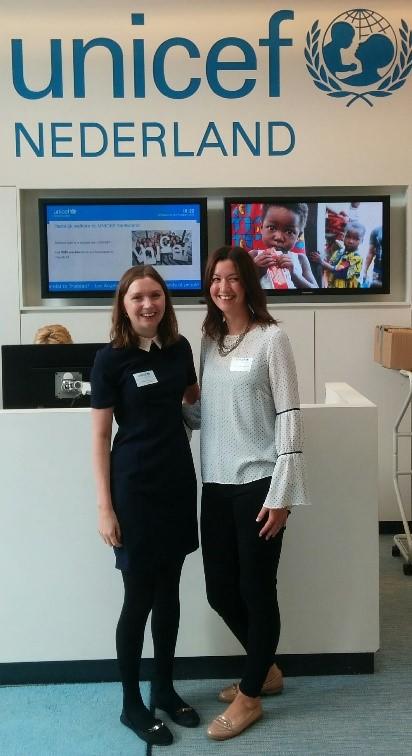In the first of our three part series on obesity, Carolyn Pallister, Public Health Manager at Slimming World, and Louisa Mason, Policy and Communications Executive at RSPH, explain the lessons we can learn from how The Netherlands has approached childhood obesity.
Following the Health on the Shelf campaign by Slimming World and the Royal Society for Public Health (RSPH), we were invited to share our experience of creating a supermarket designed to nudge consumers to make healthier choices with the Dutch branch of UNICEF.
To be invited to The Netherlands to discuss how the retail environment can be health promoting demonstrates the success of the campaign, because the city of Amsterdam is ahead of many with their novel approach to address childhood obesity.
The Amsterdam Healthy Weight Programme has been linked to the decrease in childhood obesity in the city, and it is an excellent example of the ‘whole systems approach’ in practice. The whole systems approach to obesity has become widely accepted as a suitable strategy, particularly since Public Health England (PHE) published guidance and resources for local authorities on how to use this approach. The premise is to utilise the assets of the local community to reduce the impact of the obesogenic environment, in order to promote a healthy weight for all.
The main principles of the Amsterdam Healthy Weight Programme are:
- Investment – €5 million and a team of 100 were put behind the programme when it began;
- Consistent messaging – a range of different professions were trained on the determinants of childhood obesity, including health workers, teachers, politicians, local authorities, schools, communities, sports organisations, charities, and the business sector, in order to deliver clear messages and advice;
- Targets – achievable goals were set, such as for all 0-5 year olds to be a healthy weight by 2018;
- Measurement – from birth to age four children have their height and weight measured 13 times to keep track of how they are progressing;
- Advertising restrictions – junk food marketing is under tight regulation in Amsterdam to limit children’s exposure;
- Health in all policies – multiple aspects of health that influence weight are part of the programme, including diet, exercise and sleep;
- Groups – those with the highest rates of childhood obesity, such as high risk schools, ethnic groups, and particular neighbourhoods, are given specific programmes relevant to them;
- Prevention and treatment – there is an emphasis on obesity prevention, along with support services and treatment for children who are already obese.
The programme has been an overwhelming success – the percentage of children aged two to eight with overweight or obesity fell from 21% in 2012 to 18.7% in 2017. This decline was significant among children from an average socioeconomic background.
The gains go beyond epidemiological statistics. More babies are being breastfed, sugary drink consumption has decreased, and primary school children are getting more exercise. A local whole systems approach such as this is needed in the UK, if we want to see the benefits that Amsterdam has experienced.
Another leading initiative from The Netherlands focuses on the retail environment, in a similar way to elements of the Health on the Shelf campaign. The supermarket chain Marqt is the first retailer in The Netherlands to introduce a complete ban on marketing unhealthy food to children.
Any products that do not meet the healthy eating guidelines, such as cakes, biscuits, sweets, and sugary cereals and drinks, which have cartoon characters aimed to entice children, have been removed from stores.

As part of the Health on the Shelf campaign we turned this on its head, and intended to attract children to the healthier products by using bright and colourful characters. Our pop-up store aimed to demonstrate to retailers that have not been as proactive as Marqt that it is possible to encourage healthier choices by making simple changes.
The government should take note of the success of the Amsterdam Healthy Weight Programme, and consider what we can lift from it for the next part of the Childhood Obesity Plan. The HENRY programme in Leeds showed that we can do something similar here, but we urgently need this across the country.
We hope that UK retailers will be inspired by the Nudge store and leaders such as Marqt to move the dial on this – perhaps then we will be the ones leading by example on childhood obesity, alongside The Netherlands.



